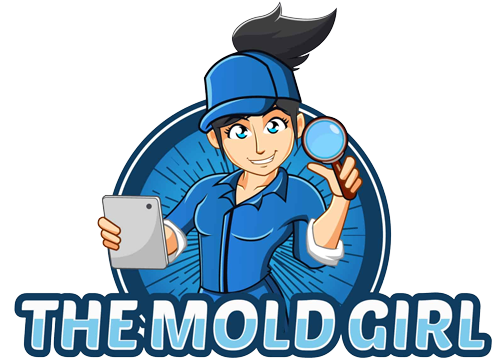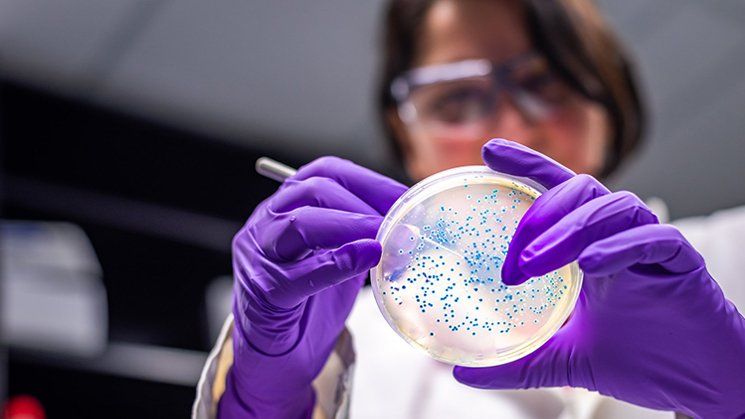YOUR Trusted LOCAL EXPERT FOR
Mold Testing In Charleston, SC
The Mold Girl is a mold testing company in Charleston, SC that provides mold testing services for homes and businesses throughout South Carolina. If you need mold testing due to a real estate transaction or due to health concerns, give us a call today!
Charleston Mold Testing
Do you see, or suspect, that you may have mold in your home? Perhaps you are experiencing allergy type reactions or headaches when in a certain room, or in the house in general. The Mold Girl will listen to your concerns, evaluate your home, take tests to determine if you have mold present, and how to remove the mold using industry standards if needed. Call The Mold Girl Today!
Top 5 Reasons for Mold Growth
HIGH HUMIDITY
Relative humidity levels of 60% and higher can provide ideal growing conditions for mold. This is because mold, as a living organism, needs water to survive, and the levels of moisture in the air and resulting condensation provide that nutrient.
PIPE LEAKS
Leaks from pipes – even tiny pinhole leaks – will create the moisture needed for mold to grow. And as a large number of leaks occur behind walls, the leaks often go unnoticed, giving the mold an even greater chance to take a toe-hold on the surfaces of your home!
POOR VENTILATION
Poor ventilation means trapped air. Buildings need proper air circulation to remain healthy. Trapped air that does not allow for evaporation is a leading cause of the moisture build-up that can lead to mold.
WET CRAWL SPACES
Crawl spaces – especially those that are not conditioned with dehumidifiers and sump pumps – can fall victim to mold growth given wet conditions. Water intrusion may occur from the outside due to weather-related events. Leaks from pipes or mechanical equipment can create standing water. Even condensation from fluctuating warm and cold air can form on crawl space surfaces. And where there is a wet crawl space, there can be mold growth in as little as 24 to 48 hours!
HVAC ISSUES
Your HVAC system works with both warm and cold air is thus is very susceptible to condensation. The condensation pan, as well as the coils and pipes in the system, can fall prey to excess moisture. The excess moisture creates the perfect environment for the development of mold growth. This can have a negative effect on the air in your home as air circulates from your HVAC.
Contact The Mold Girl Today!
We believe everyone deserves to be healthy and free from environmental hazards caused by mold, water damage, volatile organic compounds, asbestos, lead, meth, drugs, viruses, bateria and other pathogens.
Frequently Asked Questions
Please take a moment to read answers to our most frequently asked questions about our services.
We Proudly Service Charleston, SC
Looking for more information about us or want to leave a review about our services? Just click on the map below to visit our Google Business Profile.
Industry Terms Related To Mold Testing
Please take a moment to learn more about some of the industry related terms used when discussing the topic mold testing.
CONTACT THE MOLD GIRL TODAY!
We believe everyone deserves to breathe healthy air and be free of environmental hazards.
REQUEST A FREE ESTIMATE
EMERGENCY SERVICE
AVAILABLE
CONTACT INFORMATION
Phone: 843-905-2448
Address: 1617 Juliana St Daniel Island, SC 29492
Email: info@askthemoldgirl.com
Business Hours:
Mon - Fri 8:00 am - 4:00 pm
Sat - Sun Closed
APPOINTMENTS AVAILABLE
Servicing Charleston, SC and Nearby Cities
The Mold Girl provides air quality testing and indoor environmental consulting services in Charleston, SC and surrounding areas.
Related Services in Charleston, SC
Please review the list below for the most often requested services. If you suspect that you may be suffering from indoor air quality problems caused by the presence of mold, asbestos, lead, bacteria, viruses, or other environmental concerns, we can assist you in determining whether or not you do.
Mold Assessments
Are you interested in determining the mold levels in your home or office? The Mold Girl has you covered! We perform skilled mold assessments to assist you in determining the degree of any mold problems and making recommendations for remediation. To get started, contact us today!
Asbestos Assessments
The Mold Girl is the go-to business for asbestos assessments. We offer quick, reliable, and affordable services to help you stay safe and in compliance with local regulations. Contact us today to learn more!
IAQ Assessments
The Mold Girl is your trusted source for IAQ assessments in the Charleston area. Our team of experts will help you determine the quality of the air in your home or workplace and provide you with the necessary steps to improve it. Contact us today to schedule a consultation!

